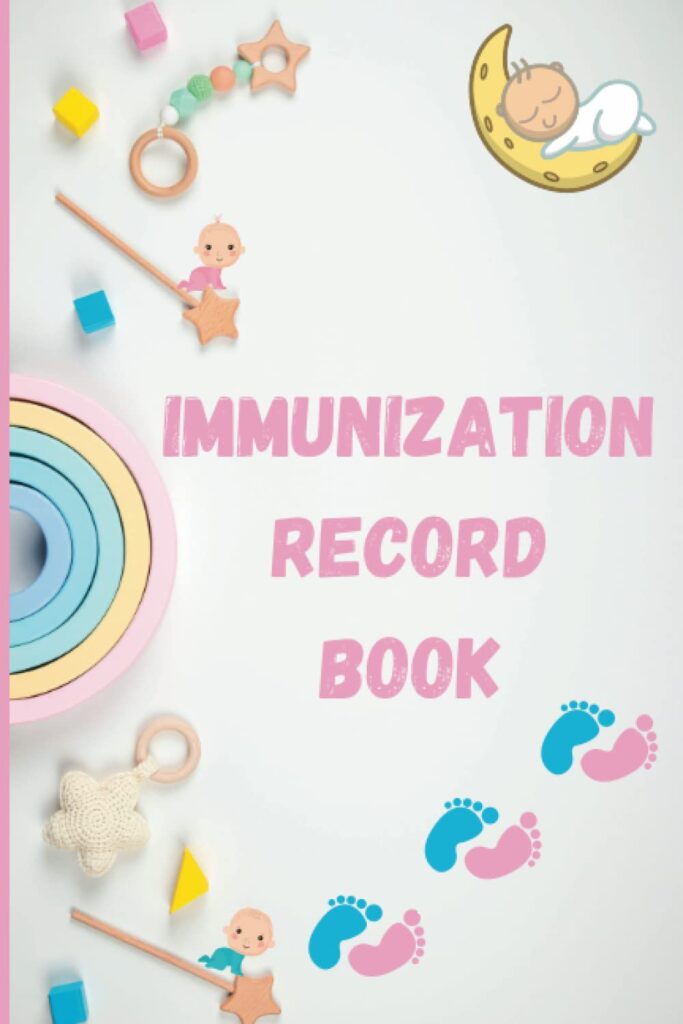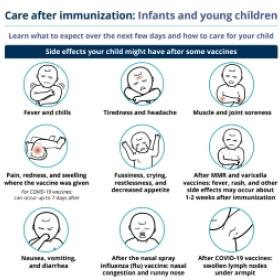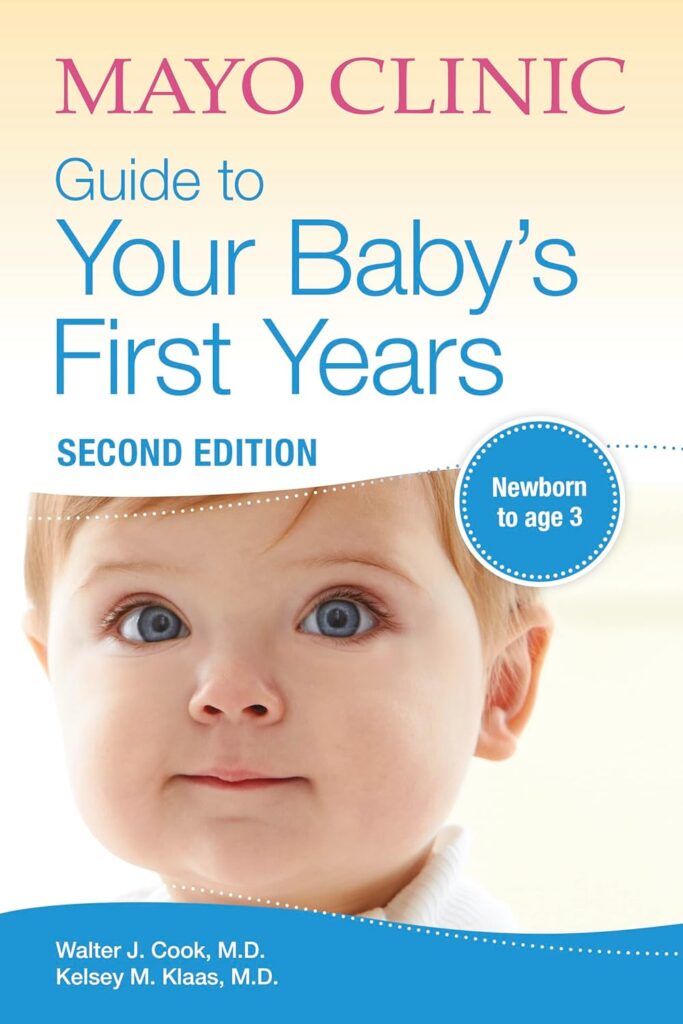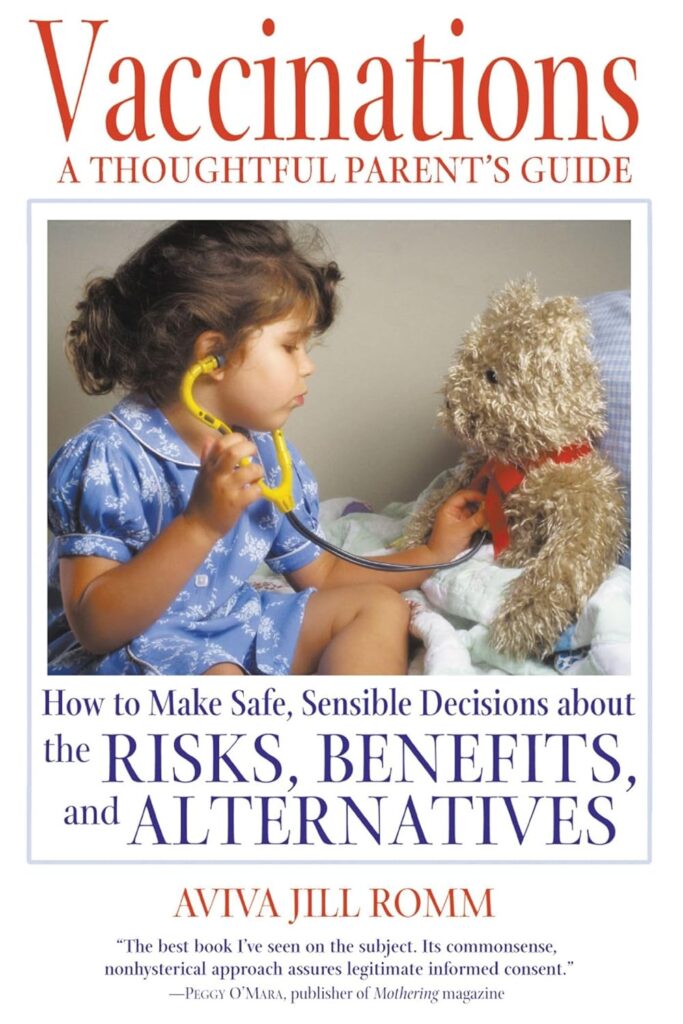Baby vaccinations schedule and side effects,vaccinations is critical for early immunity, and side effects are typically mild. Common reactions include soreness at the injection site and fever.
Ensuring your baby’s health and well-being includes adhering to a recommended vaccination schedule, which provides protection against various infectious diseases. Vaccinations start at birth and continue throughout childhood, safeguarding against illnesses such as measles, mumps, rubella, and whooping cough. Parents should be prepared for common side effects, which are usually minor and short-lived.
These can range from slight fever and fussiness to swelling or redness at the injection site. Understanding this schedule and the potential side effects equips parents with the knowledge to keep their children healthy and eases concerns about post-vaccination care. Always consult with a healthcare provider for the most accurate and up-to-date information regarding vaccinations and the care of your child post-immunization.

Introduction To Baby Vaccinations Schedule And Side Effects
This section introduces the basics of baby vaccinations. Here, you will learn why they are crucial and how they protect your little ones.
Importance Of Immunization
Immunization saves lives. It is one of the most effective ways to keep children healthy.
- Shields infants from severe illnesses.
- Prevents the spread of diseases.
- Helps eradicate infectious diseases.
How Vaccines Work
Vaccines train the body to recognize and fight invaders.
- Injection of a weakened germ into the body.
- The body learns to fight the germ.
- Body creates tools (antibodies) to defend against future attacks.
| Age | Vaccine | Diseases Prevented |
|---|---|---|
| 2 months | DTaP, Rotavirus, Hib, PCV13, IPV | Whooping cough, Polio, Pneumonia, etc. |
| 4 months | DTaP, Rotavirus, Hib, PCV13, IPV | Whooping cough, Polio, Pneumonia, etc. |
:max_bytes(150000):strip_icc()/Baby_Vaccine_Schedule_4-e8a39f07ae8b472194e9a22d7cd3d2d3.jpg)
Credit: www.verywellhealth.com
Navigating The Immunization Schedule
Keeping track of your baby’s vaccinations is crucial. It protects them from diseases. The schedule can seem complex. But don’t worry. We’ll break it down for you.
Newborn To 6 Months
Babies need several shots during their first six months. This protects them early in life.
Add more rows as needed
| Vaccine | Age | Side Effects |
|---|---|---|
| Hepatitis B | Birth | Soreness, fever |
| DTaP (Diphtheria, Tetanus, Pertussis) | 2 months | Redness, swelling |
| Hib (Haemophilus influenzae type b) | 2 months | Fever, fussiness |
6 Months To A Year
More vaccines are due between six months and a year. This builds immunity as your baby grows.
- Third dose of Hepatitis B by 6 months
- DTaP fourth dose at 15-18 months
- Flu vaccine every year starting at 6 months
- Add more list items as needed
Side effects may include crankiness or a mild fever. Your baby might be a little sleepy. These are normal signs that the body is building protection.

Yearly Shots And Boosters
Keeping your child’s immunization schedule on track is crucial for their health and well-being. Yearly shots and boosters ensure their protection against various diseases remains strong as they grow. Let’s explore the important vaccines due during the second year of life and beyond.
12 To 24 Months
As your toddler steps into the second year, the vaccination schedule includes a mix of new vaccines and boosters:
- Measles, Mumps, and Rubella (MMR) – This combined vaccine protects against three significant diseases.
- Varicella – Commonly known as the chickenpox vaccine.
- Hepatitis A – Two doses are given, typically 6 months apart.
- Booster shots – These are follow-up doses for vaccines received during the first year, such as DTaP (Diphtheria, Tetanus, and Pertussis).
Side effects are usually mild and may include a slight fever or redness at the injection site.
Beyond 2 Years
After the second birthday, the number of vaccinations needed decreases, but regular boosters are still important:
| Age | Vaccine | Notes |
|---|---|---|
| 4-6 years | DTaP, MMR, Varicella, Polio | Booster doses to reinforce immunity before school. |
| 11-12 years | Tdap, HPV, Meningococcal | Additional protection for adolescents. |
Side effects from these boosters are rare but may include arm or leg soreness, low-grade fever, or headache. Contact your pediatrician if side effects persist or are concerning.
Common Vaccine Side Effects
Vaccines are crucial for protecting babies from serious diseases. Like any medicine, they can cause side effects. Most side effects are mild and temporary. Let’s look at the common reactions following vaccination.
Local Reactions
Local reactions happen where the shot was given. They are common and usually mild. Here are typical local side effects:
- Redness: A small, pink area may appear.
- Swelling: The area might puff up a bit.
- Pain: The spot can be sore.
- Hard Lump: A small, firm bump is possible.
These symptoms often start within a few hours. They can last 2-3 days. A cool, wet cloth can help soothe the area.
Systemic Responses
Systemic responses affect the whole body. They are less common than local reactions. These can include:
- Fever: A low-grade fever can occur.
- Tiredness: Babies may sleep more.
- Fussiness: Some babies might cry more.
- Appetite Loss: Babies might eat less.
These side effects usually appear 6 to 12 hours after the shot. They can last 1-2 days. Giving fluids and dressing the baby lightly can help.
Remember, these side effects are generally mild. They show the body is building protection against diseases. If you have concerns, talk to your doctor.
Managing Post-vaccination Discomfort
As parents, we understand the importance of baby vaccinations to protect against serious illnesses. Yet, we can’t help but notice our little ones experiencing discomfort after their shots. It’s natural to seek ways to ease this post-vaccination discomfort, ensuring our babies get back to their cheerful selves swiftly. Let’s dive into effective methods to soothe pain, reduce fever, and address swelling.
Soothing Injection Site Pain
It’s common for babies to feel soreness at the injection site. To alleviate this, gentle remedies can be applied.
- Use a cool compress: Apply a clean, cool washcloth over the area to soothe tenderness.
- Offer lots of cuddles: Comforting your baby with extra hugs can help them feel better.
- Keep the limb moving: If the shot was in the arm or leg, gentle movement can reduce pain.
Reducing Fever And Swelling
Some babies might develop a mild fever or swelling after vaccinations. Here’s how to help:
| Method | Description |
|---|---|
| Dress in lightweight clothing | Helps to prevent overheating and keeps your baby comfortable. |
| Give plenty of fluids | Staying hydrated is key to fighting off fever. |
| Consult your doctor | For advice on medication like acetaminophen to reduce fever if necessary. |
Remember, these symptoms are usually short-lived, but if they persist or if you’re worried, always reach out to your healthcare provider.
Serious Adverse Effects
Vaccinations are crucial for protecting babies from serious diseases. While most side effects are mild, some can be severe. It’s important to know how to identify serious reactions and understand when to seek medical help. Quick action can ensure your baby’s health and well-being.
Identifying Severe Reactions
Severe reactions to vaccinations are rare but require immediate attention. Symptoms may include:
- High fever above 104°F (40°C)
- Difficulty breathing or wheezing
- Swelling around the face or throat
- Hives that spread over the body
- Weakness or dizziness
- Rapid heartbeat or palpitations
- Unusual crying or discomfort for more than 3 hours
- Seizures or convulsions
These signs can indicate a severe allergic reaction or other serious condition. Stay vigilant and monitor your baby closely after vaccinations.
When To Seek Medical Help
If your baby shows any severe reaction signs, seek medical help immediately. Here’s what to do:
- Call your doctor or emergency services right away.
- Report the reaction to the Vaccine Adverse Event Reporting System (VAERS).
- Keep a record of what you observe, including symptoms, time of onset, and duration.
This information helps healthcare providers make the best decisions for your baby’s care. Never hesitate to contact a professional if you are concerned about your baby’s health.
Debunking Vaccination Myths
Debunking Vaccination Myths is vital for public health. It helps parents make informed decisions about their children’s health. Vaccines undergo rigorous testing to ensure they are safe and effective. Still, myths persist and cause concern. Let’s address common misconceptions and provide clarity.
Vaccine Safety
Vaccines are among the safest medical products available. Before approval, scientists and doctors study them in thousands of participants. These studies are designed to identify any common side effects or adverse reactions.
Once on the market, vaccines are continuously monitored. The Vaccine Adverse Event Reporting System (VAERS) collects data on any side effects that occur. This ensures ongoing safety.
Serious side effects are extremely rare. Most children only experience mild reactions, such as soreness or a low-grade fever.
Link To Chronic Diseases
Concerns about vaccines causing chronic diseases have been studied extensively. Research shows no causal link between vaccines and conditions like autism, diabetes, or allergies.
- Multiple studies have found no connection between the MMR vaccine and autism.
- Claims that vaccines weaken the immune system are unfounded. In fact, they strengthen it against specific diseases.
- Thorough review processes ensure that vaccines do not contain harmful levels of any substance.
Vaccinating children is a crucial step in preventing the spread of contagious diseases. It protects not just the individual, but the entire community.

Credit: immunizebc.ca
Contraindications And Precautions
Protecting babies from serious diseases is essential, and vaccinations play a key role. However, certain health conditions and allergies may require special attention. It’s crucial to understand when a baby should not receive a vaccine, or when to take extra care.
Health Conditions
Some health conditions can affect vaccine schedules. For example, a baby with a weakened immune system might need to wait before getting certain shots. Always share your baby’s health history with the doctor.
- Cancer treatments such as chemotherapy
- Immune system disorders like HIV
- Recent blood transfusions or received immune globulins
Allergy Considerations
Vaccines are safe, but allergies can be a concern. Severe allergic reactions are rare. If a baby has had a reaction to a vaccine before, tell the doctor.
| Ingredient | Consideration |
|---|---|
| Eggs | Some vaccines are made using eggs. Check with the doctor if your baby has an egg allergy. |
| Gelatin | Gelatin is used as a stabilizer in some vaccines. It’s important to know if your baby has a gelatin allergy. |
| Yeast | Yeast allergies should be discussed, as it’s used in the production of certain vaccines. |
Always consult with a healthcare provider before any vaccinations. They will guide you through the safest options for your baby.
Vaccinations And Allergies
Keeping babies safe and healthy is every parent’s top priority. Vaccinations play a crucial role in preventing serious diseases. However, it’s important to be aware of potential allergic reactions. Let’s explore how to recognize them and which vaccine ingredients could be the culprits.
Recognizing Allergic Reactions
Allergic reactions to vaccines are rare, but they can happen. Parents need to know the signs. Common symptoms include hives, swelling, and difficulty breathing. If these occur, seek medical attention immediately.
- Hives: Red, itchy welts on the skin.
- Swelling: Especially around the face and throat.
- Difficulty breathing: Wheezing or shortness of breath.
- High fever: A temperature over 101 degrees Fahrenheit.
Vaccine Ingredients To Watch
Some vaccine ingredients can trigger allergies. Read the vaccine leaflet to check the ingredients. Here are a few to be aware of:
| Ingredient | Possible Allergen | Common Vaccines |
|---|---|---|
| Egg Protein | Flu vaccine | Influenza |
| Gelatin | Measles, Mumps, Rubella (MMR) | MMR |
| Yeast | Hepatitis B | Hep B |
Speak with your doctor if your child has known allergies. They can provide advice and alternative options.
Tips For A Smooth Vaccination Day
Vaccination days can be stressful for both parents and babies. Here are some tips to make it easier.
Before The Appointment
- Check the vaccination schedule to know what to expect.
- Gather necessary documents like insurance cards and medical records.
- Dress your baby in comfortable clothes with easy access to their legs or arms.
- Bring a favorite toy or blanket to comfort your baby.
During The Procedure
- Hold your baby securely to give them comfort and security.
- Stay calm as babies can sense stress and become uneasy.
- Ask for pain relief options if worried about discomfort.
- Follow the nurse’s guidance on post-vaccination care.
Follow-up Care And Monitoring
Follow-Up Care and Monitoring is crucial after baby vaccinations. It ensures babies are safe and healthy. Parents should know what to expect and what steps to follow. This care helps identify any adverse reactions early.
Post-vaccination Checklists
After your baby receives a vaccination, a detailed checklist can help you monitor their health:
- Track the vaccination site for redness or swelling.
- Monitor the baby’s temperature regularly.
- Observe any changes in behavior like increased fussiness or sleepiness.
- Keep a record of feeding and sleeping patterns.
Observation Periods
The first few hours post-vaccination are critical. Here’s what to do:
- Stay in the clinic for at least 15-30 minutes after the vaccination.
- Watch for any immediate allergic reactions, which are rare but can occur.
- Continue monitoring at home for any late-onset symptoms over the next few days.
These steps are essential for ensuring your baby’s health and well-being after vaccinations. Always consult with your healthcare provider for any concerns.

Catching Up On Missed Vaccines
Keeping children healthy includes following the recommended vaccine schedule. Yet, life happens and sometimes, vaccines are missed. It’s essential for parents to know that it’s never too late to catch up. This guide will help parents navigate the catch-up process to ensure their children are protected.
Delayed Vaccination Schedules
Delayed vaccines need immediate attention. A pediatrician can provide a personalized catch-up schedule. This ensures the child’s immune system can fight off diseases effectively.
Here’s a simple breakdown:
- Review the child’s vaccine history.
- Identify which vaccines are overdue.
- Schedule appointments based on priority.
It’s crucial to stick to this new schedule. Missing more doses can increase the risk of illness.
Combination Vaccines
Combination vaccines are safe and effective. They allow a child to catch up on multiple vaccines with fewer shots.
| Vaccine | Diseases Covered |
|---|---|
| MMR | Measles, Mumps, Rubella |
| DTaP | Diphtheria, Tetanus, Pertussis |
| Hib | Haemophilus Influenzae Type b |
Talk to a healthcare provider about combination vaccines. They make the process easier and less stressful for both parent and child.
The Role Of Pediatricians
Pediatricians play a crucial role in ensuring the health and safety of infants through vaccinations. They are the primary guides for parents navigating the immunization schedule and potential side effects. Pediatricians provide tailored care for each child, making them vital allies in the journey of early childhood health.
Guiding Parents
Pediatricians ensure that parents understand the vaccination schedule. They provide clear information on when each vaccine should be administered. This guidance is crucial for timely immunizations, which protect babies from serious diseases.
- Birth to 15 months: Vaccines for hepatitis B, rotavirus, DTaP, Hib, pneumococcal, poliovirus, flu, MMR, and chickenpox.
- 18 months to 18 years: Booster shots and vaccines for meningitis, HPV, and a yearly flu shot.
Addressing Concerns
Pediatricians also play a key role in addressing any concerns parents may have about side effects. They help families understand what to expect after vaccinations.
| Common Side Effects | Duration | Advice |
|---|---|---|
| Swelling or redness at the injection site | 2-3 days | No treatment needed |
| Fever or fussiness | Short term | Consult pediatrician if concerns arise |
| Drowsiness or loss of appetite | Temporary | Monitor and ensure baby’s comfort |
Pediatricians are there to support and inform parents, ensuring that babies receive the necessary protection against diseases in a safe and monitored manner.
Community Immunity And Public Health
Community Immunity and Public Health are essential in keeping everyone safe from preventable diseases. Vaccinations play a key role in this process. They not only protect individuals but also build a shield of immunity for the entire community. This shield is known as herd immunity. It stops the spread of illness and protects those who cannot be vaccinated, such as newborns and those with certain medical conditions.
Herd Immunity Explained
Herd immunity occurs when a high percentage of the community is vaccinated. It reduces the overall amount of virus that can spread. Here’s how it works:
- When most people are vaccinated, the virus cannot spread easily.
- Unvaccinated people get protection because the virus is less likely to reach them.
- This helps stop or slow down disease outbreaks.
Vaccination Impact On Disease Outbreaks
Vaccines have a major impact on public health. They reduce disease, hospitalizations, and deaths. Let’s look at the numbers:
| Disease | Before Vaccination | After Vaccination |
|---|---|---|
| Measles | Millions of cases | Fewer than 1,000 cases/year |
| Polio | Thousands of cases | Eliminated in the U.S. |
The table shows how vaccines protect the public and prevent outbreaks. Vaccination programs have turned deadly diseases into rare events.
Resources For Parents
Understanding baby vaccinations is crucial for ensuring your child’s health. Parents often have questions about the vaccination schedule and potential side effects. To assist, a variety of resources are available that provide reliable information and support.
Official Immunization Guides
Official guides offer the most up-to-date information on vaccines. They include schedules and details about each vaccination.
- Centers for Disease Control and Prevention (CDC): The CDC provides a complete immunization schedule and answers common questions.
- World Health Organization (WHO): WHO delivers global insights on immunization and its importance.
- American Academy of Pediatrics: This site gives pediatrician-approved advice for parents.
Support And Education Groups
Many groups exist to support parents through the vaccination process. They help with side effect management and educational resources.
| Group Name | Description | Contact |
|---|---|---|
| Vaccinate Your Family | A leading organization promoting the importance of vaccines. | info@vaccinateyourfamily.org |
| Immunization Action Coalition | Provides vaccine information for healthcare professionals and the public. | admin@immunize.org |
| Voices for Vaccines | A parent-led organization advocating for vaccine education. | contact@voicesforvaccines.org |
Frequently Asked Questions
How Long Do Babies Feel Unwell After Vaccinations?
Babies typically feel unwell for 24 to 48 hours after vaccinations, experiencing mild symptoms like soreness or fever.
How Long After Vaccines Do Babies Get Side Effects?
Babies typically experience side effects from vaccines within a few hours to a few days.
Why Not Give Baby Tylenol After Vaccines?
Giving Tylenol after vaccines may mask fever, which is an important sign of a potentially serious reaction to the vaccine. It’s also thought to possibly reduce the immune response. Consult your doctor for guidance.
Do Babies Sleep Better Or Worse After Vaccines?
Some babies may experience disrupted sleep after vaccinations due to mild side effects like soreness or fever.
What Is A Baby Vaccination Schedule?
A baby vaccination schedule outlines the recommended ages for routine immunizations to protect against various diseases.
Conclusion
Navigating your baby’s vaccination schedule can be a challenging journey, but it’s a crucial one for their health. Mild reactions, such as tenderness or low-grade fevers, are common and typically short-lived. Remember, these side effects are a small price to pay for the long-term immunity and protection vaccines provide.
Stay informed, consult your healthcare provider with any concerns, and keep your child’s vaccination records up-to-date for a healthier tomorrow.







